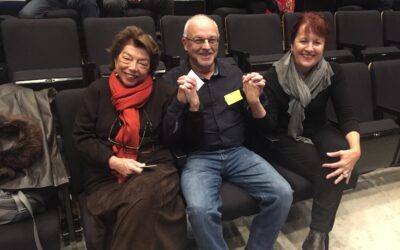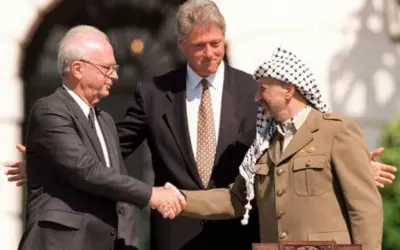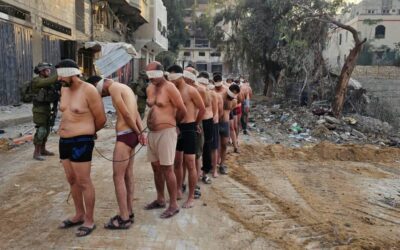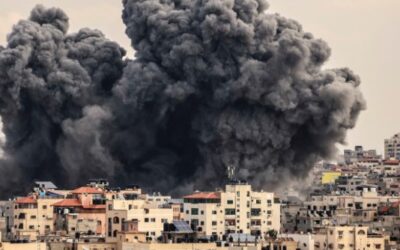Decades after arriving to the country, Israelis of Ethiopian origin still face distrust, discrimination and police brutality
JERUSALEM — Israelis of Ethiopian origin have lived in the country for years. Some of them made the long journey from Ethiopia to Israel 30 or 40 years ago, while others were born in Israel to Ethiopian-born parents. Yet many of them feel that Israeli society still treats them as outsiders, making their integration difficult.
Knesset member Tsega Melaku of the Likud Party paid a visit on Monday to 26-year-old Vendelin Avera, who sustained extensive burns last week from a firebomb thrown during a violent protest by Israelis of Ethiopian origin.
Melaku’s visit lasted longer than planned, as she found it hard to leave Avera and his distraught family. Having come to console them, she said she left despondent. “This takes me back to my own experiences of the racism I and my family experienced in Israel, of all places,” she told Al-Monitor.
Melaku, 55, is one of tens of thousands of Ethiopians of Jewish ancestry who have immigrated to Israel since the early 1980s. Born in Gondar Province, she arrived in Israel at the age of 16 and entered the struggle against the institutionalized racism of which she accuses her adopted homeland. Last Wednesday, she addressed the protest at which Avera was injured, the second such demonstration since 4-year-old Rafael Adana was killed in a May hit-and-run while out walking with his grandfather.
Community activists view the tragedy and its handling by the police and prosecutors as symptomatic of deep-seated racism. Although the driver who fled the scene was located and taken in for questioning the following day, no charges were brought against her because accident investigators found that she had been traveling in accordance with the speed limit and could not have avoided hitting the boy, who appeared to have stepped onto the road. But community leaders claim the driver would have been prosecuted for abandoning the scene of the accident without stopping to help had Rafael been white.
Journalists and activists have tried for weeks to untangle the various conspiracy theories circulating on social media from the activists’ accusations of a sloppy police investigation and foot-dragging by state prosecutors.
As the questions over the handling of the affair grew louder, protesters mobilized via Tik-Tok and took to the streets in central Tel Aviv. One of the protests deteriorated into violence and stun grenades were used to disperse the demonstrators, who had blocked a major traffic artery. Several police officers and protesters were injured in the melee.
A community abandoned
The rioting reflected deep-seated anger and frustration in the community, many of whose members were born in Israel and served in the military but still feel discriminated against by the establishment.
“I was not surprised by the intensity,” Knesset member Moshe Salomon of the Religious Zionism party told Al-Monitor. “It is not only about the abandonment of Rafael — it is the abandonment of an entire community over many years. This is not a cry of fury; it is a cry for help.”
Salomon was born in the Ethiopian Tigray region and immigrated to Israel as a child in 1984. He served in the military as a paratrooper, reaching the rank of Lt. Col. In the army reserves. Nonetheless, he sees a glass ceiling blocking progress for members of his community.
“The sense of discrimination creates mistrust in the state systems. That was why people took to the streets. The cops responded with stun grenades, which did not contribute to trust or a sense of belonging,” Salomon said, adding that the police response was particularly egregious considering that stun grenades were not often used to disperse the pro-democracy protests of recent months against the government-led judicial overhaul.
While police did use such means in several highly publicized cases against pro-democracy demonstrators, Salomon’s argument transcends feelings of discrimination. Recent studies have found that the Ethiopian community is subject to over-policing.
The 2021 report by the state comptroller found that police investigations involving minors from the Ethiopian community were four times more numerous than this cohort’s share of the general population and almost double in the case of adults. As of 2019, only 13% of the community expressed trust in the police. As of 2017, Israelis of Ethiopian origin who hold university degrees find themselves consistently at the bottom of the pay scale.
Melaku seems to be an exception to this rule. She holds a PhD in political science, worked for years as a public radio journalist. She promoted her community’s struggles for equality and exposed injustice. She said she believed that the second generation, those born in Israel, would escape institutionalized racism and discrimination, and is deeply saddened to be proven wrong.
“Every single member of our community has come across some form of racism over the past four decades. We are not a large community — only 160,000, of whom almost half, 75,000 were born in Israel. They are not supposed to go through the things we did,” she said.
No accountability
When Melaku discusses the younger generations, she points to her two sons, 26 and 29, who were both born in Israeli and performed their compulsory military service. “My younger son went out with three white friends. Police stopped him at the entrance to a club and searched him. He was humiliated. His friends were not touched,” she recalled.
Another incident seared in her memory is the shocking 1996 expose showing how the Health Ministry secretly destroyed blood donated by Israelis of Ethiopian origin. The news set off widespread protests outside the prime minister’s office, with protesters holding up signs that read, “We are black but our blood is red.”
Dozens of demonstrators have been injured in such clashes with the police. A commission of inquiry formed after the protest failed to identify the person who ordered the blood donations thrown out, fueling the perception of racist government policy. The affair continues to be a shameful reminder of officially sanctioned discrimination.
Rafael Adana’s family also claims it has not received satisfactory answers to its questions despite a meeting with state prosecutors, going so far as to accuse the state of murdering him. Maleku is convinced that this is not the last such incident.
She said, “I fear this. Our numbers are small, but our anger is immense. The hurt and sense of humiliation are only intensifying and the younger generation of our children will not accept this. I see their frustration and fury.”








